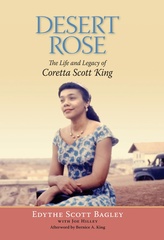
248 pages, 6 x 9
19 B&W figures - 1 map
Paperback
Release Date:23 Mar 2021
ISBN:9780817360191
Here I Stand
The Life and Legacy of John Beecher
SERIES:
The Modern South
University of Alabama Press
Biography of a forgotten poet who used his name and influence to speak up for those on the margins of society.
Few surnames resonate in American history more than Beecher. The family’s abolitionist ministers, educators, and writers are central figures in the historical narrative of the United States. The Beechers’ influence was greatest in the nineteenth century, but the family story continued—albeit with less public attention—with a descendant who grew up in Birmingham, Alabama, during the early twentieth century.
John Beecher (1904–1980) never had the public prominence of his famous ancestors, but as a poet, professor, sociologist, New Deal administrator, journalist, and civil rights activist, he spent his life fighting for the voiceless and oppressed with a distinct moral sensibility that reflected his self-identification as the twentieth-century torchbearer for his famous family. While John Beecher had many vocations in his lifetime, he always considered himself a poet and a teacher. Some critics have compared the populist elements of Beecher’s poetry to the work of Walt Whitman and Carl Sandburg, but his writing never gained a broad audience or critical acclaim during his lifetime.
In Here I Stand: The Life and Legacy of John Beecher, Angela J. Smith examines Beecher’s writing and activism and places them in the broader context of American culture at pivotal points in the twentieth century. Employing his extensive letters, articles, unpublished poetry and prose, and audio interviews in addition to his numerous published books, Smith uncovers a record of public concerns in American history ranging from the plight of workers in 1920s steel mills to sharecroppers’ struggles during the Depression to the civil rights movement of the 1960s.
Few surnames resonate in American history more than Beecher. The family’s abolitionist ministers, educators, and writers are central figures in the historical narrative of the United States. The Beechers’ influence was greatest in the nineteenth century, but the family story continued—albeit with less public attention—with a descendant who grew up in Birmingham, Alabama, during the early twentieth century.
John Beecher (1904–1980) never had the public prominence of his famous ancestors, but as a poet, professor, sociologist, New Deal administrator, journalist, and civil rights activist, he spent his life fighting for the voiceless and oppressed with a distinct moral sensibility that reflected his self-identification as the twentieth-century torchbearer for his famous family. While John Beecher had many vocations in his lifetime, he always considered himself a poet and a teacher. Some critics have compared the populist elements of Beecher’s poetry to the work of Walt Whitman and Carl Sandburg, but his writing never gained a broad audience or critical acclaim during his lifetime.
In Here I Stand: The Life and Legacy of John Beecher, Angela J. Smith examines Beecher’s writing and activism and places them in the broader context of American culture at pivotal points in the twentieth century. Employing his extensive letters, articles, unpublished poetry and prose, and audio interviews in addition to his numerous published books, Smith uncovers a record of public concerns in American history ranging from the plight of workers in 1920s steel mills to sharecroppers’ struggles during the Depression to the civil rights movement of the 1960s.
‘Here I Stand is readable and well organized. Although John Beecher is a somewhat minor figure in twentieth-century American history, his life touched on a number of important events, so this book will be a useful tool for students of both southern and American history. Smith is convincing in her portrayal of him as the intellectual and moral progeny of his famous ancestors.’
—Journal of Southern History
‘A much needed biographical study of an overlooked activist and protest poet during the long civil rights movement.’
—Christopher G. Diller, editor of Uncle Tom's Cabin (Broadview edition)
Angela J. Smith is an associate professor of history at North Dakota State University, where she heads the public history program and teaches courses in twentieth-century American history and public history.
List of Figures
Preface
Acknowledgments
Part I. Generations Playing Their Part
Chapter 1. The Beecher Family
Chapter 2. Shaping Forces
Part II. Becoming a Twentieth-Century Beecher, 1904–1928
Chapter 3. The Education of John Beecher
Chapter 4. Becoming a Poet
Part III. Professional Life, 1928–1955
Chapter 5. Experimental College and Sociology Work
Chapter 6. Working the New Deal
Chapter 7. The War and Its Aftermath
Chapter 8. The Loyalty Oath
Part IV. Poetry and Legacy, 1955–1980
Chapter 9. A Small Press of Their Own
Chapter 10. Beecher and the Civil Rights Movement
Chapter 11. The Final Years
Epilogue
Appendix 1. Beecher Family Tree
Appendix 2. John Beecher’s Published Work
Notes
Bibliography
Index








